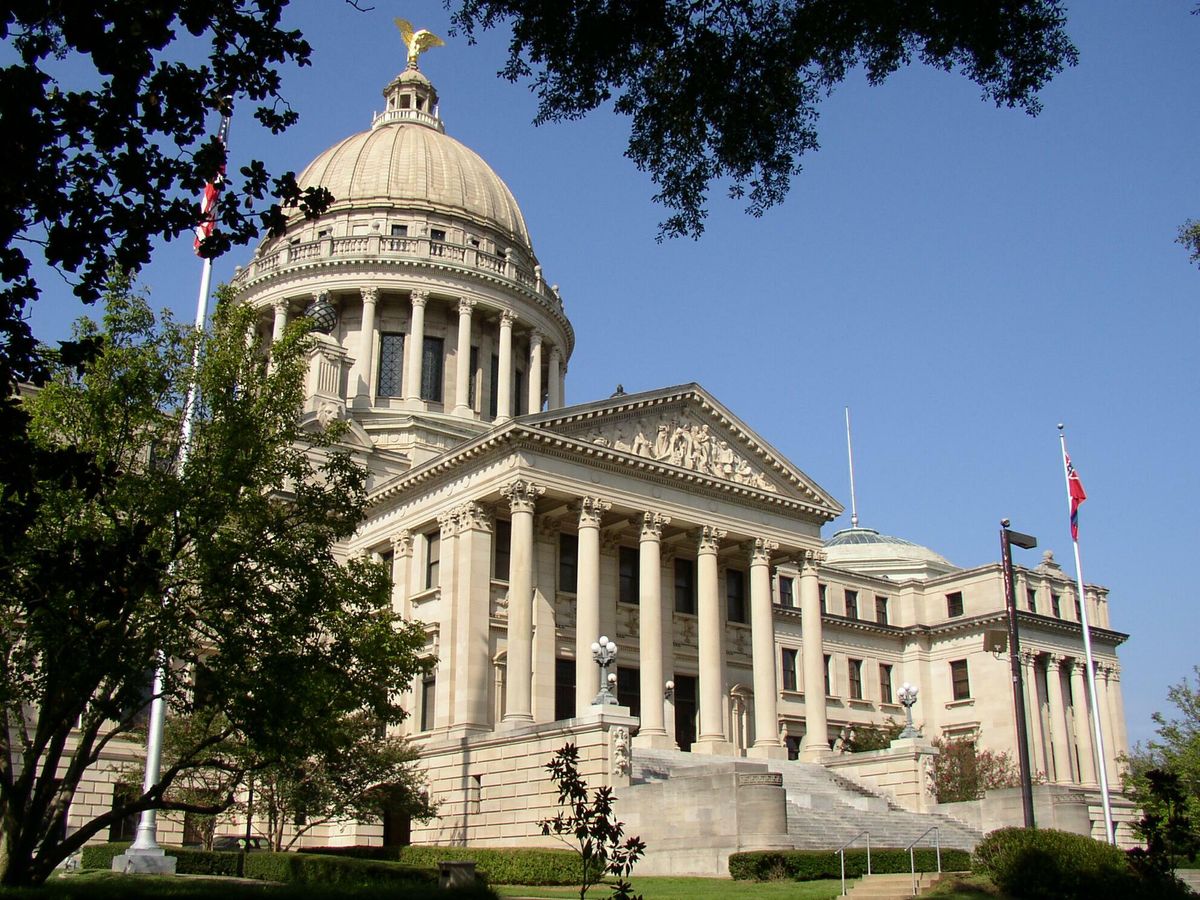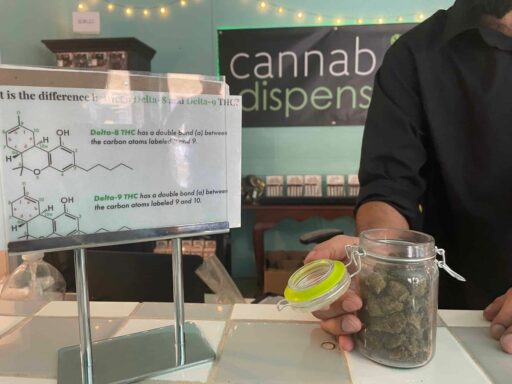The landscape of cannabis laws in Maryland is complex and ever-evolving. With the introduction of the Maryland Cannabis Reform Act, there have been significant changes to the legal framework surrounding marijuana. This article delves into the current state of cannabis legislation in Maryland, examining the intricacies of the law, recent regulatory challenges, local legislative actions, federal influence, and how Maryland’s approach compares to other states.
Key Takeaways
- The Maryland Cannabis Reform Act provides financial assistance to resident social equity licensees for startup and operational costs.
- Maryland’s social equity cannabis license program has been upheld against challenges under the Dormant Commerce Clause.
- Local rent control measures in Prince George’s and Montgomery Counties may indirectly affect cannabis retailers and growers.
- The Biden Administration’s stance on marijuana could signal federal changes that impact employers and interstate commerce.
- Comparative analysis with other states shows a national trend towards cannabis legislation reform and consumer privacy statutes.
Overview of Maryland’s Cannabis Legalization

The Maryland Cannabis Reform Act
The Maryland Cannabis Reform Act marks a significant shift in the state’s approach to cannabis regulation. Social equity is a cornerstone of the legislation, aiming to ensure that the benefits of the cannabis industry are accessible to those who have been disproportionately affected by previous drug laws.
- Financial assistance is provided to social equity licensees.
- Support includes startup capital and operational costs.
- Assistance extends to growers, processors, and retailers.
The act’s focus on social equity is designed to foster a diverse and inclusive cannabis industry in Maryland, providing a model for other states to follow.
Social Equity in the Cannabis Industry
Maryland’s approach to cannabis legalization includes a strong focus on social equity. The state has implemented measures to ensure that individuals from communities disproportionately affected by previous cannabis laws have an opportunity to participate in the industry. Financial assistance is a cornerstone of this initiative, providing support for startup capital and operational costs to qualifying social equity licensees.
However, the program has faced legal challenges. A recent lawsuit questions the constitutionality of Maryland’s social equity program, invoking the ‘Dormant Commerce Clause‘ and seeking an injunction against issuing licenses. This legal dispute underscores the complexity of balancing social equity with federal legal frameworks.
Maryland’s commitment to social equity in the cannabis industry is evident in its financial assistance programs, but the path forward is mired in regulatory and legal challenges.
Financial Assistance for Social Equity Licensees
In an effort to support the establishment and growth of cannabis businesses by social equity licensees, Maryland has put in place financial assistance programs. These initiatives aim to level the playing field by providing startup capital and operational cost support for growers, processors, and retailers within the state’s burgeoning cannabis industry.
As part of the Cannabis Business Assistance Fund, the state is set to launch the Social Equity License Application Assistance Reimbursement Grant. This grant, which opens on February 19, is designed to reimburse certain costs associated with the application process for social equity licensees.
The financial assistance programs are a critical component in ensuring that the benefits of the cannabis industry are accessible to all, particularly those from communities historically impacted by the prohibition of marijuana.
The table below outlines the types of financial assistance available to social equity licensees in Maryland:
| Assistance Type | Description |
|---|---|
| Startup Capital | Funds allocated to cover initial business costs |
| Operational Support | Financial aid for ongoing business expenses |
| Application Reimbursement | Grants to cover application-related expenses |
Regulatory Challenges and Legal Disputes

FTSA Litigation Trends
The landscape of litigation under the Federal Telemarketing Sales Act (FTSA) is evolving, with recent amendments introducing significant changes. HB 761 has mandated a 15-day notice-and-cure period before plaintiffs can initiate lawsuits for damages arising from text message solicitations. This amendment, aimed at reducing frivolous claims, also controversially applies retroactively, leading to divergent interpretations by federal and state courts.
In the context of Maryland, the Stop the Spam Calls Act, effective as of January 1, 2024, echoes the FTSA’s intent to curb telemarketing abuses. However, the state’s approach has sparked discussions on the balance between consumer protection and business operations. The following list highlights key points in the FTSA litigation trends:
- Divergence in court rulings on the retroactivity of FTSA amendments
- The introduction of a notice-and-cure period to mitigate litigation
- Maryland’s alignment with federal efforts through its own telemarketing law
The interplay between state and federal regulations continues to shape the legal environment for telemarketers, with Maryland’s new law adding another layer to the complex tapestry of telemarketing legislation.
Dormant Commerce Clause and Maryland’s Licensing
The legal landscape surrounding Maryland’s cannabis licensing has been marked by significant debate over the application of the Dormant Commerce Clause. This constitutional doctrine, while not explicitly stated, is inferred to prohibit states from passing legislation that discriminates against or excessively burdens interstate commerce.
In a pivotal case, the U.S. District Court ruled that the Dormant Commerce Clause does not apply to Maryland’s social equity cannabis license program. This decision underscores a broader legal contention, as District Courts across the nation remain divided on whether the clause should influence state laws concerning recreational cannabis.
The ruling has implications for how Maryland and potentially other states structure their cannabis licensing frameworks to promote social equity without running afoul of constitutional principles.
The table below outlines the current state of affairs regarding the Dormant Commerce Clause and its impact on cannabis licensing in Maryland:
| Aspect | Detail |
|---|---|
| Court Ruling | Dormant Commerce Clause does not apply |
| Affected Program | Maryland’s social equity cannabis license program |
| Legal Contention | Division among District Courts on the clause’s applicability |
| Implications for Maryland | Potential restructuring of licensing to align with ruling |
Recent Court Decisions Impacting Cannabis Laws
Recent court decisions have played a pivotal role in shaping the landscape of cannabis laws in Maryland. A notable ruling by the U.S. District Court affirmed that the Dormant Commerce Clause does not apply to Maryland’s social equity cannabis license program. This decision underscores the state’s commitment to fostering a diverse and equitable cannabis industry.
In addition to this landmark ruling, there have been other significant legal developments:
- The FTSA litigation trends indicate a divergence between federal and state courts on the issue of retroactivity.
- Maryland’s approach to financial assistance for social equity licensees has been upheld, reinforcing the state’s reformative efforts.
The legal landscape for cannabis in Maryland continues to evolve, with recent rulings bolstering the state’s regulatory framework and social equity initiatives.
Local Legislation and Rent Control Measures

Prince George’s County Rent Control Extension
In response to the housing affordability crisis, Prince George’s County has extended its rent control measures. This extension is a critical step in stabilizing the rental market and providing relief to tenants facing economic pressures. The extension aims to cap rent increases and offer a degree of predictability for both renters and landlords.
While the specifics of the extension are still under discussion, the following points highlight the key aspects:
- Rent increase limitations to ensure affordability for current tenants
- Provisions to prevent sudden and excessive rent hikes
- Measures to maintain the quality and safety of rental properties
The rent control extension in Prince George’s County reflects a broader trend in Maryland to address housing affordability through legislative action. It underscores the importance of balancing the interests of tenants with those of property owners in a rapidly changing economic landscape.
Montgomery County Rent Control Updates
In response to the housing affordability crisis, Montgomery County has taken steps to update its rent control measures. These updates aim to balance the needs of residents with the interests of property owners. The recent Alert from Ballard Spahr LLP highlighted the Montgomery County Right of First Refusal legislation, which is a significant component of these updates.
- The Right of First Refusal allows tenants or tenant associations the opportunity to purchase their building if the owner decides to sell.
- This legislation is part of a broader effort to maintain affordable housing options in the county.
The updates to rent control in Montgomery County reflect a commitment to ensuring that all residents have access to affordable housing.
While these changes are primarily focused on housing, they also have implications for cannabis retailers and growers in the area. The stability and affordability of housing can influence the local workforce and consumer base, which in turn affects the cannabis industry.
Impact on Cannabis Retailers and Growers
The local legislation and rent control measures in Maryland have a direct impact on cannabis retailers and growers. Rent control extensions and updates can significantly affect the overhead costs of cannabis businesses, particularly in counties like Prince George’s and Montgomery. These costs are a critical factor for businesses that are already navigating a complex regulatory environment.
In response to these changes, cannabis businesses may need to adjust their financial strategies. The fiscal 2025 impacts, as noted in the Maryland Cannabis Administration’s budget analysis, will be an important consideration for these entities. Below is a list of potential adjustments that retailers and growers might consider:
- Re-evaluating lease agreements and seeking more favorable terms
- Exploring opportunities for financial assistance under the Maryland Cannabis Reform Act
- Adjusting pricing strategies to account for increased operational costs
- Considering relocation to areas with more favorable rent control measures
It is essential for cannabis businesses to stay informed and proactive in adapting to local legislative changes to maintain sustainability and growth.
Federal Influence and Potential Changes

Biden Administration’s Stance on Marijuana
The Biden Administration has not made a definitive move towards the legalization of marijuana at the federal level. However, there have been indications of a more lenient approach towards cannabis-related policies. The administration’s actions suggest a shift in focus from strict enforcement to public health strategies.
- The U.S. Department of Labor issued new guidelines affecting workplace policies.
- Executive orders have been signed that impact public health and safety.
- Worksite raids have been reduced, indicating a softer stance on immigration and labor enforcement.
While not directly related to cannabis, these actions reflect an overall trend of progressive reform under the current administration. The implications for employers and businesses are still unfolding, and the cannabis industry is closely monitoring these developments.
Implications for Employers and Businesses
The evolving landscape of cannabis laws has significant implications for employers and businesses. Employers must navigate a complex web of state and federal regulations to maintain compliance while respecting the rights of employees who use marijuana legally outside of work. The Biden administration’s stance on marijuana could further influence workplace policies.
- Employers are considering the impact of cannabis legalization on workplace safety and performance.
- Multi-state employers face unique challenges in creating uniform weed policies.
- Legal guidance on the use of AI in hiring practices is crucial as it intersects with employee cannabis use.
The balance between maintaining a safe work environment and respecting employee privacy is a delicate one that requires careful consideration and often, tailored solutions.
Interstate Commerce and Federal Regulations
The interplay between state legalization of marijuana and federal regulations presents a complex legal landscape. There is currently no regulatory framework to govern interstate shipments of marijuana goods. These products remain criminal at the federal level even if they are legal within certain states. This dichotomy creates a significant barrier for businesses operating in the cannabis industry, as they cannot legally transport their products across state lines, stifling potential growth and market expansion.
Federal influence on marijuana commerce is further complicated by the potential for changes in federal policy. With the Biden administration’s stance on marijuana potentially shifting, businesses are cautiously optimistic but must remain compliant with current federal laws. The lack of a clear path forward has led to calls for a more cohesive strategy that aligns state and federal regulations.
The current state of affairs underscores the need for a regulatory framework that reconciles state-level legalization with federal law, ensuring a stable and legally sound environment for the cannabis industry.
A comparative look at how other substances are regulated across state lines could offer insights into how a future system for marijuana might function. However, until federal laws change, the cannabis industry must navigate a patchwork of state regulations with no guarantee of consistency or protection from federal enforcement actions.
Comparative Analysis with Other States

New York’s Cannabis Industry Reform Proposals
In the wake of challenges faced by the cannabis industry in New York, state lawmakers have put forth a series of reform proposals aimed at addressing the issues that have arisen since the legalization of adult-use marijuana. The proposals are a response to the problematic rollout of the market, which has been hindered by delays and a surge in unlicensed sellers.
The one-house budget proposals include significant changes to regulatory frameworks, with a focus on streamlining processes and enhancing oversight. Notably, Gov. Kathy Hochul has called for an audit of the state’s cannabis regulator to ensure accountability and improve the implementation of cannabis laws.
The reform efforts underscore the state’s commitment to establishing a robust and equitable cannabis industry, while also learning from the initial obstacles encountered.
These developments in New York serve as a critical case study for Maryland, as they highlight the importance of proactive legislation and the potential need for ongoing adjustments post-legalization.
New Hampshire’s Consumer Privacy Statute
On March 6, New Hampshire took a significant step in consumer data protection by enacting Senate Bill 255, a comprehensive consumer privacy statute. Governor Chris Sununu’s signature on the Act marks New Hampshire’s alignment with a broader national movement towards safeguarding personal information.
The Act’s provisions reflect a commitment to ensuring that consumers have greater control over their personal data. Key elements of the statute include:
- The right to access and obtain a copy of personal data
- The right to correct inaccuracies
- The right to delete personal data
- The right to opt-out of data processing for targeted advertising, sale, or profiling
The New Hampshire bill is a testament to the state’s proactive approach to consumer rights and privacy. It stands as a model for other states considering similar legislation.
With the passage of this Act, New Hampshire joins a growing list of states with comprehensive data privacy laws. This legislative trend underscores the increasing importance of privacy in the digital age and the need for a detailed comparison of enacted laws.
National Trends in Cannabis Legislation
As the cannabis industry evolves, national trends are emerging that reflect a shift in public perception and legislative action. Most Americans now live in a legal marijuana state, with a significant number of dispensaries operating in areas where recreational use is permitted. Our analysis finds that around three-quarters of all dispensaries in the country (76%) are in states that have legalized the recreational use of marijuana.
The landscape of cannabis legislation is dynamic, with states frequently updating their laws and introducing new regulations. This constant change presents both opportunities and challenges for businesses and policymakers alike.
The following list highlights some of the key developments in state cannabis legislation:
- New York’s recent budget proposals include significant cannabis industry reform measures.
- New Hampshire has enacted a comprehensive consumer privacy statute, reflecting a growing concern for data protection in the cannabis sector.
- California continues to lead in regulatory reform, setting precedents for other states to follow.
- The reclassification of marijuana as a Schedule III controlled substance is under consideration, signaling potential federal shifts.
Conclusion
As we have explored the intricacies of Maryland’s cannabis laws, it’s clear that the state is navigating a complex legal landscape. With the Maryland Cannabis Reform Act providing avenues for social equity licensees to receive financial assistance, the state is making strides towards a more inclusive cannabis industry. However, the legal environment is dynamic, with ongoing discussions and updates that could further shape the industry. It’s important for residents and businesses to stay informed about the latest developments to ensure compliance and to take advantage of new opportunities as they arise. As Maryland continues to refine its approach to cannabis regulation, the implications for social equity, public health, and the economy will be areas to watch closely.
Frequently Asked Questions
Is marijuana currently legal in Maryland?
Yes, marijuana is legal in Maryland for both medical and recreational use. The Maryland Cannabis Reform Act has established the legal framework for cannabis legalization in the state.
What is the Maryland Cannabis Reform Act?
The Maryland Cannabis Reform Act is the legislation that has legalized the use, possession, and sale of marijuana in Maryland. It includes provisions for social equity in the cannabis industry and financial assistance for social equity licensees.
Can social equity licensees in Maryland receive financial assistance?
Yes, under the Maryland Cannabis Reform Act, social equity licensees may receive financial assistance with startup capital and operational costs for growers, processors, and retailers.
How has the Dormant Commerce Clause affected Maryland’s cannabis licensing?
A U.S. District Court ruled that the Dormant Commerce Clause does not apply to Maryland’s social equity cannabis license program, allowing the state to continue supporting local social equity initiatives in the cannabis industry.
What is the federal government’s current stance on marijuana legalization?
The Biden administration has shown signs of reforming federal marijuana laws, but as of now, marijuana remains illegal under federal law. Any changes at the federal level could have significant implications for employers and businesses.
How do Maryland’s cannabis laws compare to those in other states like New York and New Hampshire?
Maryland’s cannabis laws are similar to those in states like New York, where reforms are being proposed to address industry challenges. New Hampshire has focused on consumer privacy with a comprehensive privacy bill, reflecting a national trend towards more regulated cannabis legislation.





